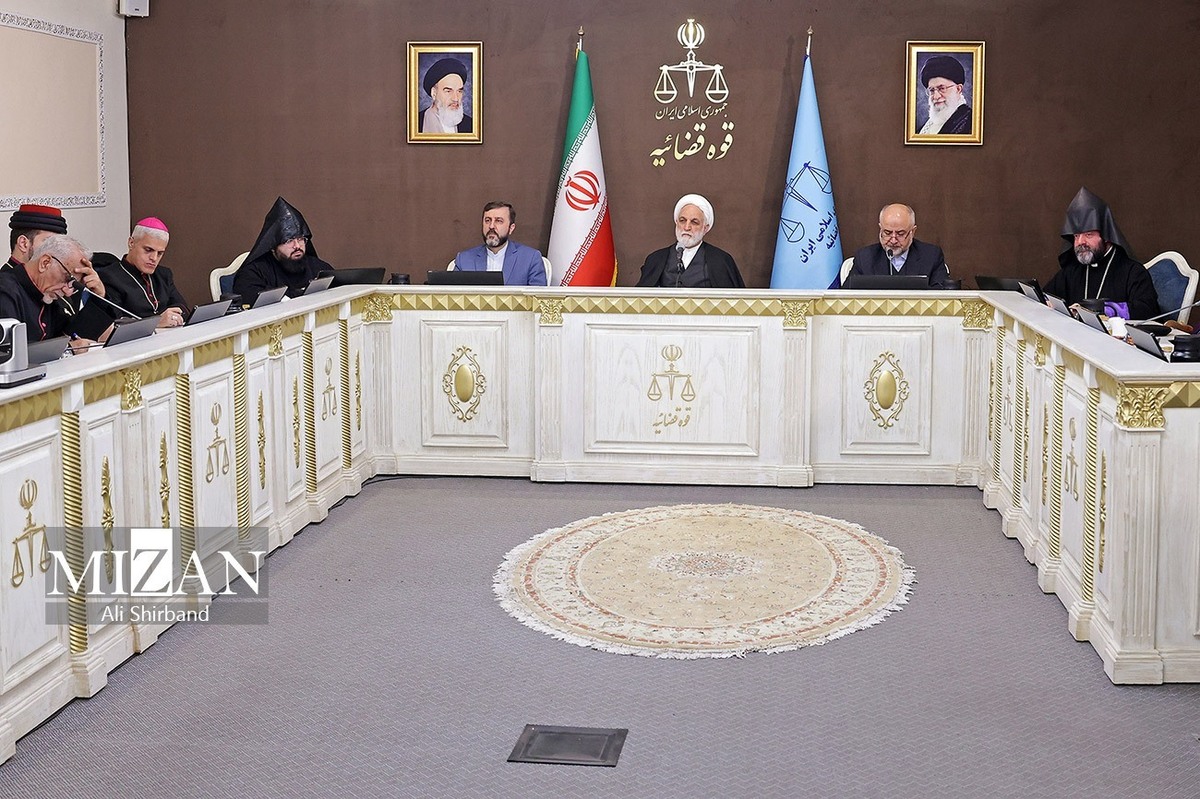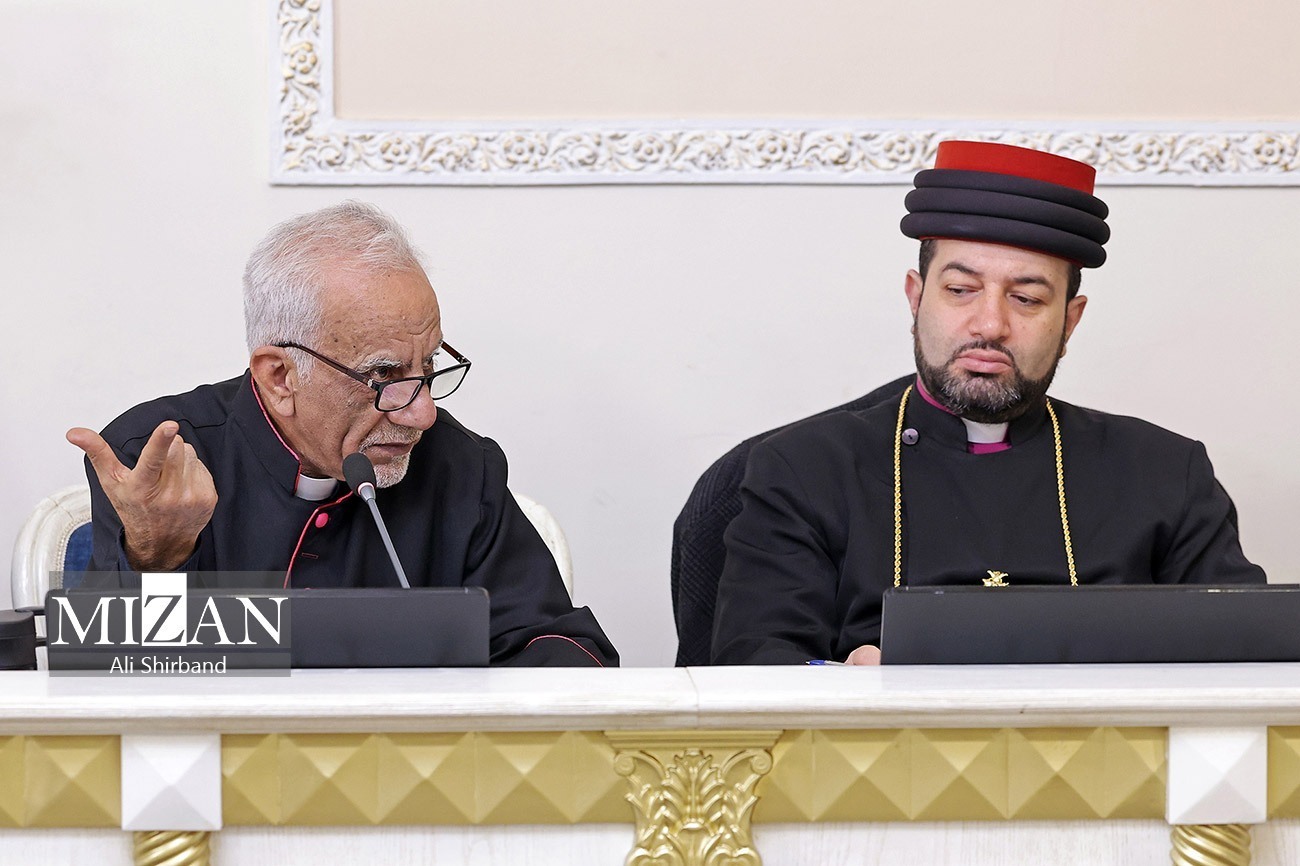Representatives of the Iranian Christian community: Meeting with the head of the judiciary is a testament to religious freedom in Iran

Mohseni Ejei, the head of the judiciary, met with representatives of the Armenian and Assyrian communities (religious and in the Islamic Consultative Assembly) of the country on the occasion of the birth of Jesus (PBUH). The head of the judiciary stated in this meeting: We in the judiciary are moving towards specializing the courts, and each Christian citizen and fellow countrymen can benefit from the relevant mechanisms in this area to advance their cases.
In this regard, Geghard Mansourian, the representative of Armenian Christians from the south of the country in the Islamic Consultative Assembly, in an interview with Mizan, while referring to the meeting that took place, said: Such a meeting is a testament to the freedom of religious minorities in Iran.
Stating that the meeting between the representatives of the country's Christian community and the head of the judiciary was a fruitful one, he said: Representatives of Christian religious minorities (Armenians and Assyrians), including members of parliament, the Archbishop of Isfahan and the south of the country, the assistant bishop of Tehran and the north of the country, and Armenian Catholic Christians, were present in a cordial meeting with the head of the judiciary, and this in-person meeting led to raising issues and concerns.

Mansourian went on to say that while voicing their concerns during the meeting, the minority representatives specifically thanked the judiciary and its head, expressing gratitude for the establishment of justice and the nondiscriminatory handling of ongoing cases.
Stating that the Archbishop of Isfahan and the south of Iran specially thanked the head of the judiciary for granting five days of leave for Christian convicts on the occasion of the New Year and also for resolving the issue of blood money for minorities, he said: With the help of the Supreme Leader of the Revolution and judiciary officials, the problem of blood money for religious minorities in Iran was settled a few years ago. At the same time, representatives of religious minorities in this meeting expressed gratitude for the resolution of inheritance and legacy issues last year, as well as the judiciary's and the nation's courts' cooperation in issuing and enforcing rulings on the matter of personal status based on the laws of the minorities.
In another part, the representative of the Armenian Christians of the South of the country in the Islamic Consultative Assembly, describing the meeting and its constructive and beneficial effects, stated: This was an excellent meeting and the representatives of the minorities also announced that this meeting is a clear example of freedom of religions in the country; the concerns and issues that were in the minds of the officials of our communities were raised in the meeting with the head of the judiciary; the head of the judiciary provided useful explanations for resolving these concerns and issues and somehow specified the policy; this meeting also has a high impact on our society; while it has a very important impact on resolving the issues and problems of religious minority communities, especially on problems between members of the community and can lead to a faster and smoother resolution of the aforementioned problems.
Also, Vanya Sargiz, assistant bishop of the Catholic Church in Tehran, who was also present at the meeting between the head of the judiciary and representatives of the country's Christian community, said in an interview with Mizan: "The head of the judiciary listened to our concerns in this meeting and announced that he would address them."
Sargiz stated: "We were honored to be present in the presence of the head of the judiciary, and it was an honor to be in such a sincere meeting on New Year's Eve; the head of the judiciary listened to the concerns of the representatives of Christian minorities with an open spirit and announced that these demands and concerns would be addressed."

He pointed out that the head of the judiciary immediately asked the representatives for information about the cases in question after raising the issues in this meeting, and said: "This shows that the judiciary acts on the rights of minorities in accordance with the law; the head of the judiciary responded to our demands very quickly. Branches in Urmia, Ahvaz, and Isfahan where we had legal cases were handled very quickly. "
The assistant bishop of the Catholic Church in Tehran added: "We are first and foremost Iranians; we are Christian Iranians; although we are a religious minority and belong to monotheistic religions, it is a source of pride for us to be Iranians."
Stating that I am sincerely proud of being Iranians, he said: "In Iran, we have access to all the rights we have and our rights have not been violated; all judges throughout Iran write letters to our representatives in cases related to us on various issues such as divorce, blood money, inheritance monopoly, etc., and we respond to them based on the laws of our church, and they act in accordance with our letter; I don't think there is such a procedure anywhere in the world."